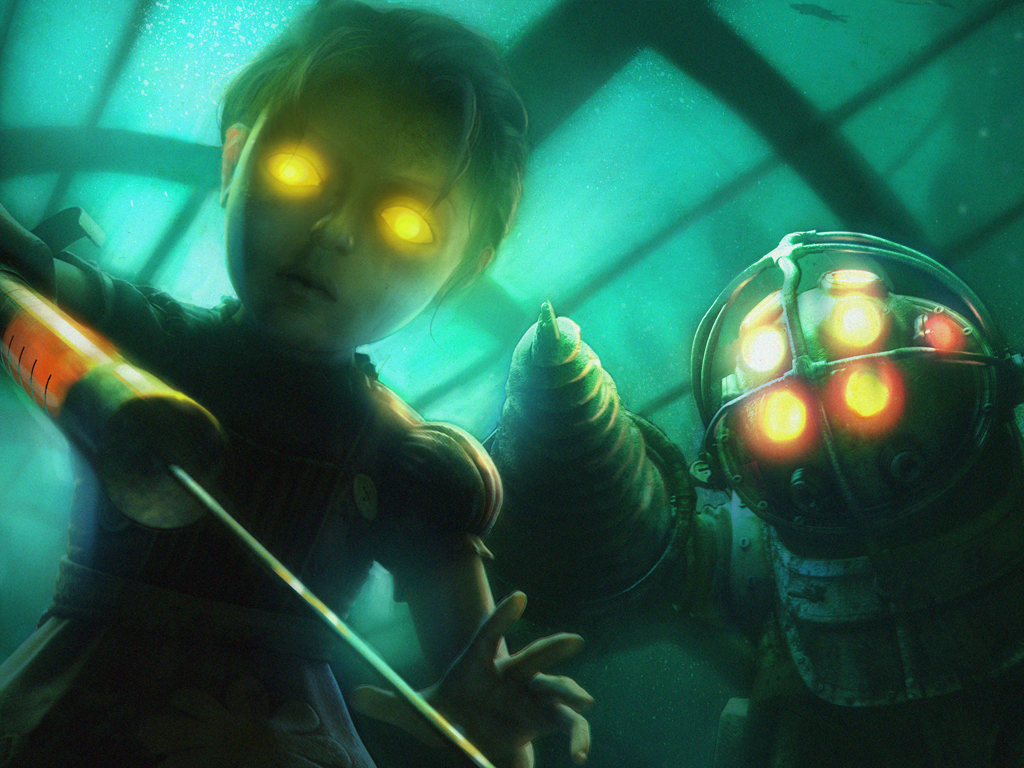Tom has been gracious enough to let me back in the door to blog my experience at the Gaming + Learning + Society conference this week.

Ethical Choices and Trangression in Games
MicroPresentations by Manveer Heir, Anthony Betrus, Monica Evans, David Simkins, and Erin Hoffman
This rapid-fire session felt like TED on speed. Each presenter had 7 minutes to present, then the floor was opened for discussion. There were a couple clear themes that resonated with me.
First, Manveer Heir was the only presenter to focus on gaming from a non-MMOG. Heir pointed out that most modern games follow a black and white model of ethics–the kind of ethic you see in Star Wars, for instance. In this framework, the choices of the players are very limited and do not accurately reflect the world around us. He is advocating for a more “grey” ethic where the choices available to the player are vast and, at times irreversible. In this grey ethic, the player would experience a larger pallet of emotions. For instance, if you, as the player, are faced with a scenario where killing a closely aligned character would save a mass of people, and you knew you could not simply save and return if you didn’t like the results, you are going to spend some time determining the reletive value of that choice. You might experience grief or regret instead of simply blindly choosing to kill knowing you can go back if you want. Heir sees four key elements to a game that truely pulls off a grey ethic:
- Narrative (the player must be emotionally invested; narrative must be in line of the mechanics of the game)
- Consequences (must have significant ones for gamer’s choices)
- Obstacles (can make the decisions more complecated)
- Permanence (Saving and going back circumvent permanence–instead, create a series of key moments in the game that cannot be reversed and change the outcome of the game)
My first reaction was that these four keys translate into a developers nightmare. Heir would agree. He pointed out that producers would look at a branch of game play that might only be used, say, 10% of the time (when a player made a certain pivotal choice) and simply cut it. This model for game development does not seem cost effective to the bean counters, but it would move games closer to a life-like experience.
Educators are not bean counters. Educators see the intrinsic value of creating an ethic that has more than two choices. And I, for one, believe this type of development, though labor intensive, would provide opportunities to create scenarios for the classroom that are not about simply “winning” or “experiencing”. A game could be about why you make the choices you do. The value is in the conversation/reflection after playing. Students could be places in losing battles in the Civil War and allowed to make different choices than those actually made, or they might be a genetic scientist who has to determine where the line between progress and abuse of power is with their work. The game would move from a linear simulation to a playground for exploration.
The other presenters focused on online communities (World of Warcraft and GoPets). The common thread in these presentations was that there was no specific ethic (Black, White, or Grey). The designers of the game leave those choices up to the players. In place of an ethic, these games rely on the reputation of the player and the “guild” to guide the players. This opens the door for abuse and intollerance, but ultimately puts the responsibility on the player.
Educators often fear introducing a game that allows for killing and abuse. This is why we gravitate to Second Life in the classroom instead of World of Warcraft or EVE. But putting those constraints on the students means cutting away a vast set of scenarios that could be used as teachable moments. If our students are playing these games outside of school, and these games are shaping the student’s perception of the world. Shouldn’t we be open to these games in school if for no other reason than the convesations we could have about the choices we make in games and how they would translate in our real lives?
